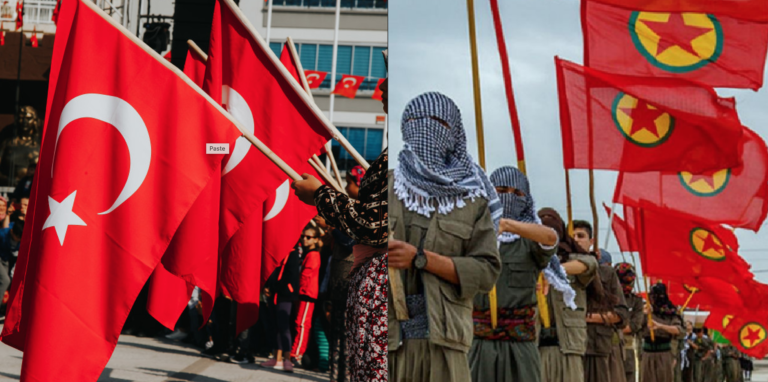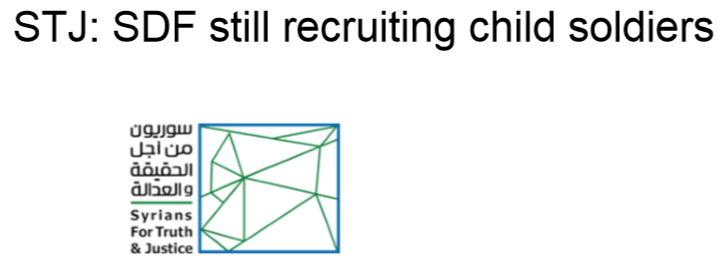BY Hedwig Kuijpers
As springtime is near, Turkey is preparing for its next large-scale offensive against its archenemy; the Kurdistan Worker’s Party (PKK). It already started with its incessant shelling of Ayn-Issa in North-Syria, threatened to invade Sinjar, and the execution of an operation centering around the Gare mountain in Duhok district, Iraqi Kurdistan. But where will the next large offensive take place? Will it be Sinjar, Ayn-Issa, or Iraqi Kurdistan? Will Turkey make new enemies along the way?
Sinjar
On January 22th, Turkish president Recep Tayyip Erdogan uttered his famous phrase: “We may come there overnight, all of a sudden,” threatening the Sinjar region. “Turkey is always ready to carry out joint operations against the PKK with Iraq but we cannot openly announce the date for such operations.”
Turkish analysts argued that Ankara was intent on launching a military operation in Sinjar (Iraq), noting that the surprise visit of Turkish Defense Minister Hulusi Akar to Iraq brought with it an offer to carry out a joint operation against the organization. Akar stated that Turkey is determined “to end terrorism” through cooperation with Baghdad and the KRG, and pointed out that the next phase in Turkish operations will witness important developments in this regard.
I contended that Turkey was baiting Biden and the new US administration, hoping to test its reaction to Turkish operations in regions with a PKK presence in my article: ‘Turkey takes Biden for a test-ride’. Sinjar, which is still digging up the mass graves of Yazidis slaughtered by ISIS, is not just any province. It is still reeling from genocide. Turkey’s threat to hit the PKK in Sinjar may not elicit a response from the United States, but it is likely to get a reaction from Iran.
Turkish threats to Sinjar have provoked pro-Iranian Iraqi militias to increase their presence in the region. Hashd al-Shaabi or the Popular Mobilization Forces (PMF), have announced that they will increase their role in the area, claiming that both the Iraqi central government and the Kurdistan Region Government have failed to implement the Baghdad-Erbil Sinjar agreement. The pact initiated in October 2020 was meant to stabilize the region and end the ongoing turf war in Sinjar. Disputes over who controls Sinjar have led to collapsing government services and insecurity. Insecurity is the main reason that Sinjar’s population has not returned.
Having established a strong foothold in Syria’s North-East, the Kurdistan Workers’ Party (PKK) and its proxy, the Kurdish-dominated People’s Protection Units (YPG), offered fleeing Yazidis humanitarian and military aid, leading to the formation of a Yazidi sister-militia, the Shingal Resistance Unit (YBS) in 2014. Other remaining Yazidis joined the Yazidi-Yazidkhan force, while a smaller amount joined the Peshmerga and the Popular Mobilization Forces (Hashd al-Shaabi).
The Sinjar agreement stated that only Iraqi federal forces should operate in Sinjar. All other armed groups, including the PKK and the PMF, should leave the area. It also gave the KRG a say in establishing a new local government, including appointing a new mayor and planning and running reconstruction efforts in Sinjar. The KRG was also supposed to have a say over the budget. This agreement was to have settled Baghdad-Erbil disputes over control of the region and to have led to the withdrawal of the militias currently active there. Turkish threats to enter the region began when the agreement was not quickly implemented.
The Kurdistan Region Government did not respond to Turkey’s threatened incursion, nor did the Iraqi government in Baghdad. The only forces to pick up Turkey’s gauntlet were pro-Iranian militias. They spoke out against the threat and began to move into the region.
Harakat al-Nujaba threatened the Turkish Military with action if an incursion was to take place in Nineveh and Sinjar. It reminded Turkish forces of action taken against American forces. It concluded its statement by saying that unless the Iraqi government would take divisive action, there would be active resistance against Turkish occupation.
Shortly after, another militia allegedly affiliated with Iran – Asaib al Khayf -published a video of the launch of a missile targeting the Turkish military base in Bashiqa, Iraq. Another militia attacked the airport of Erbil and killing one civilian contractor, and injured nine others, amongst them one US service member.
Another statement believed to be linked to Iran’s IRGC, says (claims) that all resistance axis groups in Iraq have pledged to take action against Turkish forces in the case of an incursion in the Sinjar region. The statement reads there are 20.000 personnel deployed in Sinjar so far.
Pro-Iranian forces taking a harsh stance against a Turkish invasion – something both KRG and the Iraqi central government have failed to do – are believed to have averted the threat (for now). Turkey will not want to provoke Iran.
Last night, another Iran-linked ‘Islamic Resistance’ telegram account stated: “We are following events in Sinjar. We are monitoring the operation rooms of the enemy and its agents. As they disturb Iraqis, we are going to disturb them soon.”
Ayn-Issa
Turkey has been aiming to capture the M4, a highway connecting Aleppo with Qamishlo. It runs all the way to the Yaaroubia border crossing. About 140 kilometers of this road borders the areas its Syrian proxies occupy in North-Syria. The SDF-held town of Ayn Issa sits at the point the highway bends north. It is a thorn in Turkey’s eye.
Shelling and small-scale proxy-attacks to capture the M4 have continued over the winter, forcing the Russians to increase their military checkpoints in the area.
Yesterday, military sources in Ayn Issa confirmed that Russian troops stationed at the main Russian military base in the city, located in the southeast forming a buffer between Turkish-backed forces and the SDF, pulled back to Til Samen. Reportedly, the Russians left some troops in the three shared bases north of the city.
On February 19th, Nuri Mahmoud, a spokesman for the People’s Protection Units (YPG), confirmed that the SDF, may be part of the new “Syrian army” after reaching a comprehensive political solution to the Syria crisis.
The Russian withdrawal happening in the context of tensions between Russia and the SDF and the new Astana talks – a Turco-Ruso-Iranian-led initiative to end the Syrian conflict – and was obviously meant to pressure the SDF in striking a deal with Damascus to avoid an impending Turkish incursion. This manoeuvre led to panic among SDF-supporters foreseeing Turkish troops flooding the area as the Russians withdraw.
It is yet to become clear how both Turkey and the SDF will react to Russian withdrawing from Ayn Issa, and to what extend the Russians really intend to withdraw. Are they merely (temporarily) stomping their feet at differences with the SDF leadership, is it a ploy to show it has lost its patience with SDF’s ‘waiting game’ to reapproach Damascus, or does it intend to let Turkey invade?
Personally, I see this move as a political move, serving the second. I do not foresee a full-blown Turkish incursion of Ayn-Issa starting this week. Turkey is still pivoting to gain a clear reaction from both Russia and the NATO-allies. It has allegedly amassed tanks and troops at its border with Tal Abyad. Yet, I believe it will try to finally reach the M4 through intensified war-by-proxy, hence the – once again – increase in Turkish-backed militants’ shelling of the villages surrounding both Tal Abyad and Ayn Issa throughout the last 48 hours.
Iraqi Kurdistan
Events concerning Turkey’s ever-lasting war against the Kurdistan Workers’ Party never leave the stage. Its operations of 2020 have led to Turkey controlling swats of North-Iraq militarily, and an incredible amount of Turkish military bases in KDP-held areas of the KRG.
Lasting from February 10th to the 14th, Turkey started its most recent operation – dubbed Operation Eagle Claw 3 – surrounding the Gara Mountain, situated in the Duhok Governorate of the Kurdistan Region. It also bombed the nearby Zap region. The result was such that both the PKK and the Turkish Armed Forces claimed victory following the operation. The accounts of what evolved during this operation vary.
In the aftermath, Turkish president Recep Tayyip Erdogan vowed to expand military operations to other regions where threats are still significant. “Whichever hole they enter, we will find them there and we will bump them off,” he said during the provincial congress of his ruling Justice and Development (AK) Party in Trabzon, a city located on the Black Sea coast.
Turkish interior minister Süleyman Soylu released a television statement explaining the strategic importance of Gare for Turkey. He stated Gare is the PKK’s corridor connecting Qandil and North-East Syria. He also explained – showing locations on the map – that Gare is extremely important as it hosts most PKK academies. His statements are true. PKK fighters use the Gare regions extensively for training, and use the local infrastructure to transport themselves between Qandil and the Syrian border. Gare also borders other areas that are used to launch forces into Turkey.
Süleyman Soylu also threatened the PKK’s military commander Murat Karayilan, vowing not to rest until capturing him, and “cut him into thousand pieces”.
This was met with laughter by Karayilan, who released his own statement yesterday, saying: “Süleyman Soylu threatens us with street language. If we were afraid of death, we would not have carried out this struggle. Soylu should stop threatening from his halls and sending the children of the poor to death. I challenge him. If he has the courage let him come.”
He also stated that the Turkish operation in Gare was an operation ‘meant to stay’. According to him, Erdogan intended to capture the Gare mountain and interrupt the PKK’s logistics, trainings, and movement of forces from East to West.
In my opinion, Turkey will certainly continue its attacks on PKK targets in Iraqi Kurdistan, as previous offensives have not been met with resistance by Erbil, Baghdad, or the international community. The only place Turkey currently feels certain of attacking, lies here. It will try to further interrupt the PKK’s movement there, mainly targeting Gare and Zap, and by bombing Qandil throughout the summer.
By doing so, it might attempt to push PKK leadership and camps further to the Iranian side of Qandil – where it cannot target them as easily as inside the KRG, in an attempt to hurt their ceasefire with Iran, and ‘making them Iran’s problem’.
Looking at events in Syria – where Turkey and Iran have different goals -, Sinjar, and possibly future strive along Qandil’s border, a new question arises. Will the PKK become the cause of strive between the two neighbouring countries?










